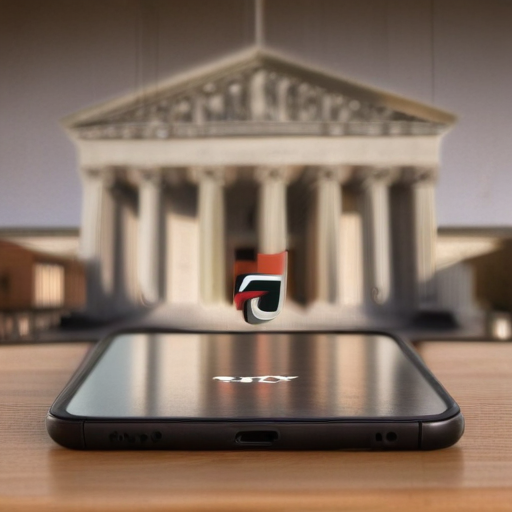TikTok creators recently gathered in Washington, D.C., ahead of a press conference to express their concerns regarding the proposed “Protecting Americans from Foreign Adversary Controlled Applications Act,” which could lead to the app’s ban in the United States. On Friday, the Supreme Court will hear oral arguments that could determine the future of TikTok in relation to the First Amendment’s free speech protections. The law is set to impose stringent civil penalties on any app entities that continue to operate TikTok after January 19 if ByteDance, the parent company, does not divest the app to an American company.
The decision from the Supreme Court could significantly impact the experience for TikTok’s estimated 115 million monthly users in the U.S. If the ban takes effect without a ruling beforehand, users who already have the app downloaded might still be able to use it, but they would likely be prohibited from updating or reinstalling it. This scenario poses a major challenge for content creators who rely on TikTok for income through various revenue streams. George Wang, a staff attorney from the Knight First Amendment Institute, warned of the wider implications of such a ban, suggesting it establishes dangerous precedents for online speech regulation.
Support for and opposition to the ban has generated significant attention. Numerous high-profile amicus briefs have been filed, presenting viewpoints from organizations, congressional members, and even President-elect Donald Trump. The government, represented by Attorney General Merrick Garland, maintains that TikTok poses a national security threat until it is divested from ByteDance. Meanwhile, Trump’s brief requests the court allow for a political solution that would permit TikTok to operate while addressing security concerns, underscoring the platform’s integral role in political campaigning and its popularity among younger voters.
Looking ahead, the exact timeline for the Supreme Court’s ruling remains uncertain, yet the expedited nature of the case has led to speculation that a swift decision could be forthcoming. Legal experts highlight that this case could set a pivotal precedent regarding the balance between free speech rights and national security interests.
In summary, this unfolding situation underscores the intersection of technology, national policy, and free speech. Depending on the Court’s ruling, the outcome will not only affect TikTok’s presence in the U.S. but also set a significant legal standard for how digital platforms are regulated in the future. As creators and users navigate this critical moment, it presents an opportunity to advocate for greater protections of free expression in the digital age.
